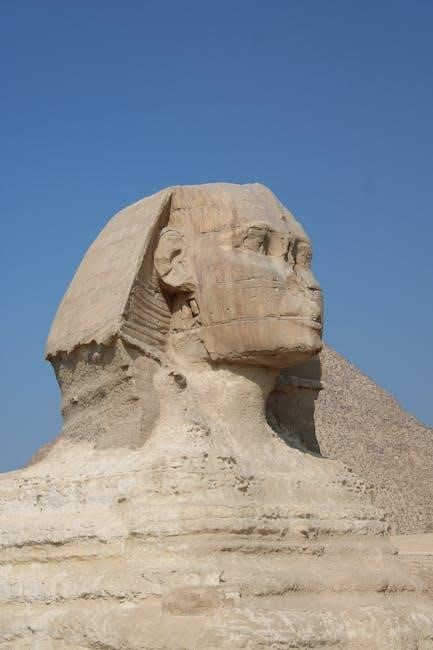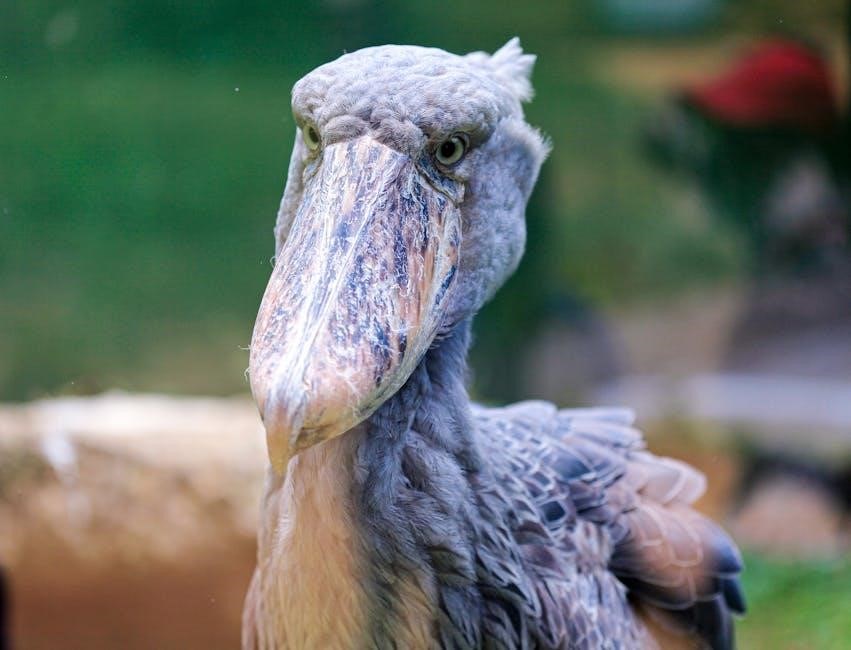Darius the Great Is Not Okay, a debut novel by Adib Khorram, explores themes of identity, mental health, and cultural belonging through the journey of Darius Kellner, a clinically depressed teenager navigating life in America and Iran․
Overview of the Novel
Darius the Great Is Not Okay is a heartwarming and poignant debut novel by Adib Khorram that follows the journey of Darius Kellner, a clinically depressed high school sophomore․ Darius, who identifies as half-Persian, struggles with feelings of inadequacy in both America and Iran․ The story begins with Darius’s family traveling to Iran to visit his ailing grandfather, a trip that becomes a transformative experience for him․ Upon arrival, Darius meets Sohrab, his grandfather’s neighbor, who becomes a pivotal figure in his life․ Through humor and heartfelt moments, the novel explores Darius’s internal battles, cultural identity, and the power of human connections․ It is a story of self-discovery, family, and finding one’s place in the world․
Author Background: Adib Khorram
Adib Khorram is an Iranian-American author known for his heartfelt and thought-provoking young adult literature․ Born in Kansas City, Khorram draws inspiration from his own experiences as a biracial individual, blending cultural nuances into his storytelling․ His debut novel, Darius the Great Is Not Okay, earned critical acclaim and prestigious awards, including the William C․ Morris Debut Award and the Asian/Pacific American Award for Young Adult Literature․ Khorram’s writing often explores themes of identity, mental health, and belonging, resonating deeply with readers․ His work reflects a deep understanding of the complexities of growing up between cultures, making him a significant voice in contemporary YA literature․
Relevance of the Title
Darius the Great Is Not Okay captures the essence of its protagonist’s internal struggles with identity, culture, and mental health․ The title reflects Darius’s feelings of inadequacy, as he navigates being a Fractional Persian in America and grapples with clinical depression․ The phrase “Not Okay” underscores his emotional state, emphasizing his journey toward self-acceptance․ The title’s simplicity and honesty resonate with readers, inviting them to connect with Darius’s vulnerabilities․ It also highlights the universality of feeling out of place, making the story relatable to anyone who has ever questioned their belonging․ The title’s relevance lies in its ability to encapsulate the novel’s themes of self-discovery and the importance of embracing imperfections․
Key Themes in the Novel
The novel explores identity struggles, mental health, family dynamics, and cultural bridging, offering a heartfelt portrayal of Darius’s journey to self-acceptance and understanding․
Identity Struggles: Cultural and Personal
Darius Kellner faces profound identity struggles, feeling disconnected from both his American and Iranian heritage․ As a half-Persian teenager, he grapples with cultural expectations and personal belonging, often feeling like an outsider in both worlds․ His journey to Iran, where he meets his grandparents and Sohrab, forces him to confront these internal conflicts․ The novel highlights his struggle to reconcile his dual identity, showcasing his efforts to find acceptance and self-worth amidst cultural and familial pressures․ This exploration of identity is deeply personal and relatable, offering readers a window into the challenges of navigating multiple cultural inheritances while seeking personal authenticity․

Mental Health: Portrayal of Depression
Darius the Great Is Not Okay offers a raw and poignant portrayal of clinical depression through Darius Kellner’s experiences․ The novel vividly captures his struggles with feelings of inadequacy, self-doubt, and the weight of mental health stigma․ Darius’s internal battles are depicted with honesty, showcasing how depression affects his relationships, self-perception, and daily life․ The story highlights his efforts to cope with these challenges, emphasizing the importance of understanding and addressing mental health․ Khorram’s portrayal is both sensitive and authentic, providing readers with a relatable and humanizing perspective on living with depression․ This aspect of the novel resonates deeply, making it a powerful exploration of mental health in young adult literature․
Family Dynamics and Relationships
Darius the Great Is Not Okay delves deeply into the complexities of family dynamics and relationships․ Darius’s journey to Iran to meet his grandparents introduces him to a side of his family he barely knew, fostering unexpected connections․ His relationship with his parents, particularly his father, is explored through moments of tension and understanding․ The bond Darius forms with Sohrab, his grandparents’ neighbor, becomes a pivotal aspect of his trip, offering him acceptance and friendship․ These interactions highlight the challenges of navigating intergenerational and cultural gaps while also revealing the power of love and support in healing familial relationships․ The novel portrays how family can both frustrate and redeem, shaping Darius’s sense of belonging and identity․
Cultural Bridging: America vs․ Iran
Darius the Great Is Not Okay masterfully explores the cultural divide between America and Iran through Darius’s experiences․ As a half-Persian teenager, Darius struggles with feeling inadequate in both cultures, speaking better Klingon than Farsi and understanding Hobbit social cues more than Persian ones․ His trip to Iran forces him to confront these cultural gaps, revealing the richness of his Persian heritage while highlighting the challenges of navigating two worlds․ The novel bridges these cultures by showcasing the universal themes of family, identity, and belonging, ultimately illustrating how Darius’s dual identity becomes a source of strength rather than weakness․ This cultural bridging resonates deeply, offering readers a poignant reflection on what it means to belong in multiple worlds․

Plot and Character Development
Darius the Great Is Not Okay follows Darius Kellner’s journey as he navigates clinical depression, cultural identity, and family dynamics․ His trip to Iran to meet his grandparents transforms his life, particularly through his bond with Sohrab, his grandparents’ neighbor, who becomes a pivotal figure in his growth․ The novel explores Darius’s struggles in America and his evolving understanding of his Persian heritage, weaving together humor, heartbreak, and self-discovery in a compelling narrative of personal transformation and cultural connection․
Darius’s Journey to Iran
Darius’s journey to Iran is a pivotal moment in the novel, marking a shift in his understanding of identity and belonging․ Leaving behind the familiar challenges of America, Darius travels to meet his grandparents, encountering a culture he struggles to connect with․ His mother’s decision to visit her ailing father sets the stage for this transformative experience․ Upon arrival, Darius grapples with language barriers and cultural expectations, yet finds unexpected solace in his bond with Sohrab, his grandparents’ neighbor․ This journey not only bridges the gap between his Persian heritage and American upbringing but also challenges his perceptions of self-worth, setting him on a path of self-discovery and growth․

The Role of Sohrab in Darius’s Life
Sohrab emerges as a pivotal figure in Darius’s life, offering him acceptance and friendship during his stay in Iran․ Unlike the judgmental peers Darius faces in America, Sohrab connects with him on a deep level, sharing interests and understanding his struggles․ Their bond transcends cultural barriers, providing Darius with a sense of belonging he had long lacked․ Sohrab’s unwavering support helps Darius confront his insecurities and reevaluate his self-worth․ Through their friendship, Darius learns to embrace his complexities and find strength in his uniqueness, making Sohrab an instrumental catalyst for his personal growth and healing journey․
Challenges Faced by Darius in High School
Darius faces significant challenges in high school, where he struggles with social isolation and bullying․ His clinically depressed state intensifies his feelings of inadequacy, as he grapples with not fitting in․ After-school work at the Tea Haven provides some solace, but incidents like his vandalized bike—left with humiliating rubber truck nuts—underscore his alienation․ Darius’s difficulties stem from his struggles with social cues and his mixed cultural identity, leaving him feeling like an outsider․ These challenges weigh heavily on his mental health, reinforcing his belief that he is “not enough,” a perception he carries with him both in America and Iran․ His high school experiences highlight the complexities of adolescence compounded by cultural and personal struggles․
Reception and Awards
Darius the Great Is Not Okay won the William C․ Morris Debut Award and the Asian/Pacific American Award for Young Adult Literature․ It received critical acclaim for its heartfelt portrayal of identity and mental health, impacting YA literature significantly․
William C․ Morris Debut Award
Darius the Great Is Not Okay earned the prestigious William C․ Morris Debut Award in 2019, recognizing Adib Khorram’s outstanding first novel․ This award honors debut authors in young adult literature, celebrating fresh voices and compelling narratives․ The novel stood out for its authentic portrayal of Darius Kellner, a clinically depressed teenager navigating cultural identity and family dynamics․ The Morris Award highlighted the book’s emotional depth, humor, and nuanced exploration of mental health, solidifying its place in contemporary YA literature․ This recognition not only boosted the novel’s visibility but also underscored its impact on discussions about identity, culture, and mental health, resonating deeply with readers worldwide․
Asian/Pacific American Award for Young Adult Literature
Darius the Great Is Not Okay received the Asian/Pacific American Award for Young Adult Literature, honoring its authentic portrayal of the Asian/Pacific American experience․ The novel explores Darius’s journey as a half-Persian teen navigating cultural identity and family dynamics․ This award recognizes books that offer authentic and meaningful representations of Asian/Pacific American life, and Khorram’s work excels in this regard․ The story bridges cultural gaps between America and Iran, highlighting universal themes of belonging and self-discovery․ The award underscores the novel’s impact in showcasing diverse voices and enriching young adult literature with profound cultural insights․ It celebrates Khorram’s ability to weave humor, heartache, and hope into a relatable and unforgettable narrative․
Critical Acclaim and Reviews
Darius the Great Is Not Okay has garnered widespread critical acclaim for its heartfelt and authentic storytelling․ Reviewers praise Adib Khorram’s debut novel for its nuanced portrayal of mental health, cultural identity, and family dynamics․ The novel’s humor, paired with its emotional depth, resonates deeply with readers․ Many have commended its realistic depiction of a teenager’s struggles, making it relatable to a broad audience․ The book’s ability to balance light-hearted moments with serious themes has been particularly highlighted․ Critics also applaud the novel’s contribution to diversifying young adult literature by offering a fresh and necessary perspective․ The acclaim reflects the novel’s impact on readers and its significance in contemporary YA literature․

Adaptations and Future Prospects
Universal is developing a film adaptation of Darius the Great Is Not Okay, with Kevin Hamedani and Travis Betz set to write the screenplay․ A sequel, Darius the Great and the World He Created, further expands Darius’s journey, offering new insights into his life and growth․
Universal’s Film Adaptation
Universal Studios has acquired the rights to adapt Darius the Great Is Not Okay into a feature film, with Kevin Hamedani and Travis Betz penning the screenplay․ This project, produced by Todd Lieberman and David Hoberman, aims to bring Darius’s poignant journey to the big screen, capturing his struggles with identity, mental health, and cultural bridging․ The adaptation promises to retain the novel’s emotional depth and humor, offering a fresh perspective on young adult experiences․ Fans of the book are eager to see how the story translates to film, hoping it will resonate with an even broader audience․ The movie has the potential to further cement the novel’s legacy in contemporary YA literature․
Sequel: Darius the Great and the World He Created
Adib Khorram’s sequel, Darius the Great and the World He Created, continues the heartfelt journey of Darius Kellner as he navigates life after his transformative trip to Iran․ This installment delves deeper into Darius’s personal growth, exploring his evolving relationships and his ongoing quest to find his place in the world․ The sequel maintains the same blend of humor and poignancy that made the first book beloved, offering readers further insight into Darius’s struggles and triumphs․ Fans of the original novel will appreciate the continuation of his story, which remains authentic and resonant․ The sequel reinforces the impact of Darius’s experiences, solidifying his legacy as a memorable character in young adult literature․
Darius the Great Is Not Okay leaves a lasting impact on young adult literature, offering a heartfelt exploration of identity, mental health, and belonging, resonating deeply with readers worldwide․
Impact of the Novel on Young Adult Literature
Darius the Great Is Not Okay has made a significant impact on young adult literature by offering a raw, authentic portrayal of identity, mental health, and cultural struggles․ Its nuanced exploration of clinical depression and Persian heritage has resonated deeply with readers, filling a gap in diverse storytelling․ The novel’s success has encouraged publishers to seek more stories from underrepresented voices, particularly those bridging cultural divides․ Its blend of humor and heartbreak has set a new standard for honest, vulnerable narratives in YA literature, inspiring authors to tackle similar themes with sensitivity and depth․ The book’s recognition through awards further highlights its influence in shaping contemporary young adult fiction․
Final Thoughts on Darius’s Story
Darius the Great Is Not Okay leaves readers with a profound appreciation for its authentic and heartfelt narrative․ Darius’s journey from self-doubt to acceptance is both poignant and uplifting, offering hope to those grappling with similar struggles․ The novel’s ability to balance humor with heavy themes creates a relatable and memorable protagonist․ By focusing on mental health and cultural identity, it provides a vital perspective often overlooked in young adult literature․ Darius’s story not only resonates emotionally but also fosters greater empathy and understanding among readers․ Its lasting impact lies in its honest portrayal of imperfection and the universal quest to belong, making it a cherished and impactful read for many․

